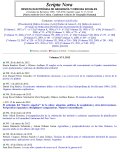Latin America in relation to the politics of regional economic integration in the developing world
Keywords:
Latin America, MERCOSUL, economic integration, inequalitiesAbstract
In times of globalization or mundialization of the capital, the world system presents itself significantly integrated, through the combination of technique, science and information. It values to the fullest the capacity of production, circulation and consumption, thus, a maximum capacity of flows, of money, information, commodities, as well as supplies and people. In this context emerges the economic blocs of power, that among other things reinforce and recognize the socio-spatial inequalities within and outside regions. Thus, this paper seeks to analyze the policies of regional economic integration in the developing world, especially in Latin America, paying attention to the inequalities generated or reproduced inside this process, mainly in the context of the economic integration of MERCOSUL. In the Latin America case, the Mercado Comum do Sul (MERCOSUL), establish edit self in 1991 by the Asunción Treaty, aiming to integrate even more the economies of South America. However, it is notorious the production and reproduction with the wealth and poverty, and the increasing inequalities and sociospatial contradictions, therefore the social segregation. Brazil and Argentina are in the top position in the regional scenario, considering the different levels of industrialization and development, despite these internal socio-territorial inequalities. In relation to the territorial and regional division of labor other countries show themselves even more dependent and vulnerable, especially in terms of technology and economy, although indifferent situations.Downloads
Issue
Section
Articles
License
Los autores que publican en esta revista están de acuerdo con los siguientes términos:
- Los autores conservan los derechos de autoría y otorgan a la revista el derecho de primera publicación, cin la obra disponible simultáneamente bajo una Licéncia de Atribución Compartir igual de Creative Commons que permite compartir la obra con terceros, siempre que estos reconozcan la autoría y la publicación inicial en esta revista.
- Los autores son libres de realizar acuerdos contractuales adicionales independientes para la distribución no exclusiva de la versió de la obra publicada en la revista (com por ejemplo la publicación en un repositorio institucional o en un libro), siempre que se reconozca la publicación inicial en esta revista.





